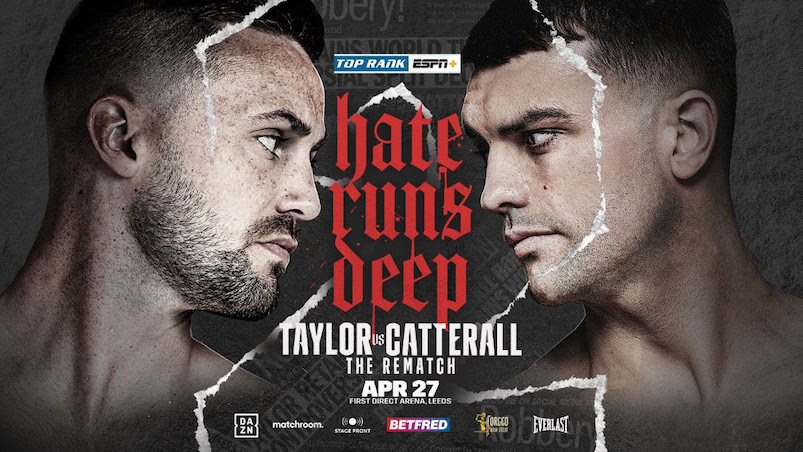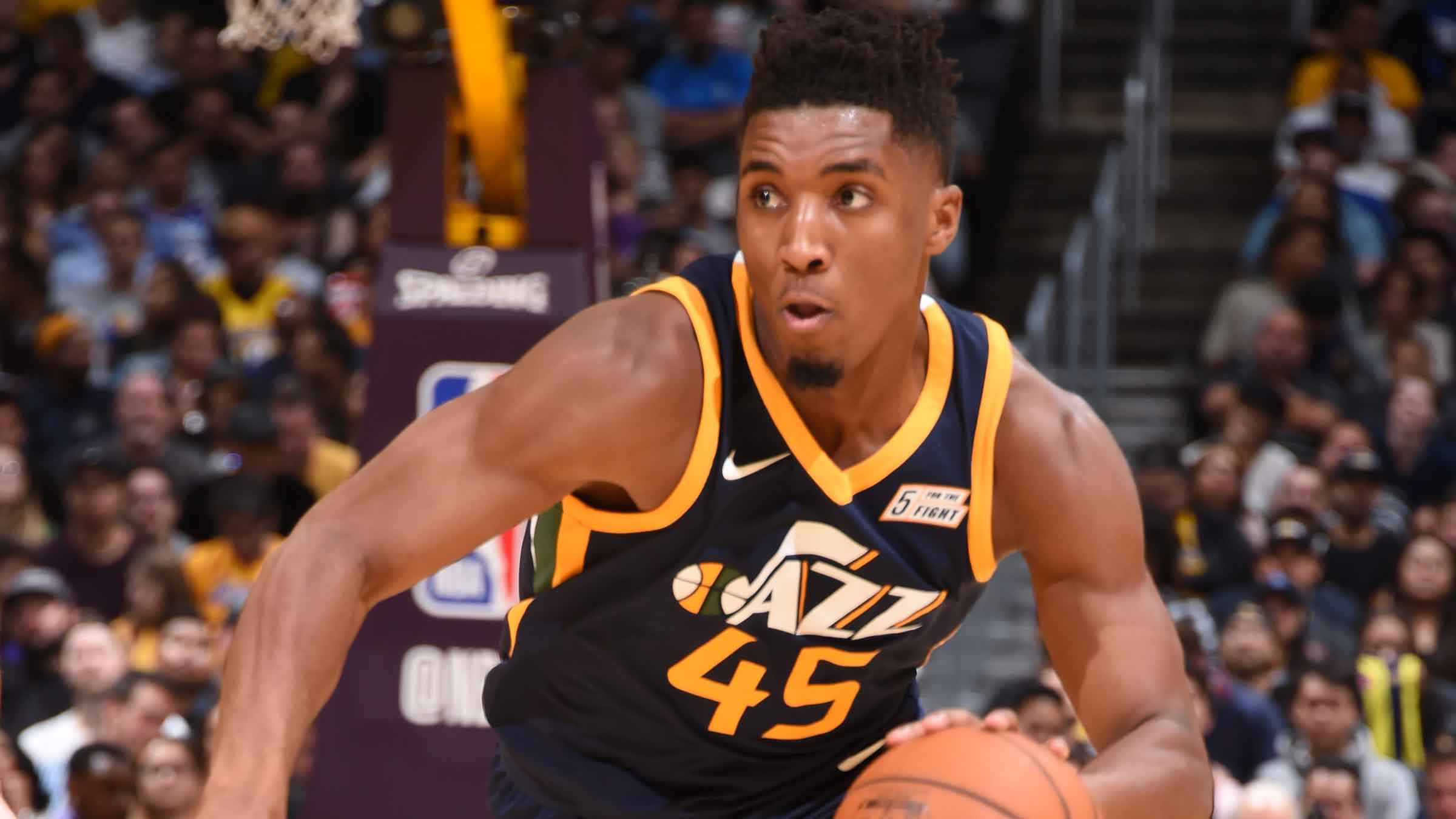Before Donovan Mitchell was drafted 13th by the Utah Jazz, before he became entrenched in a two-way Rookie-of-the-Year race with Ben Simmons, it was his headmasters at Brewster Academy that saw his potential to be more than just a budding SportsCenter highlight reel.
He says they asked him if he wanted to run for senior prefect — the equivalent of high school president. “I didn’t, to be honest,” Mitchell recalls. “I was nervous.”
But Mitchell’s headmasters saw an opportunity for him to thrive. In the two years Mitchell spent at Brewster Academy, his game blossomed and so too did his fame. But as his following grew, he tried to make sure his accessibility remained intact.
“Sometimes, with athletes on campus, you feel like you can’t relate to them,” he says. “So that was my biggest thing.”
Once Mitchell was convinced to run, he dove headfirst into the task, preparing a five-page speech that he delivered at the school’s assembly hall. Even then, he had a preternatural ability to connect. And for those who weren’t bowled over his charm — or his policies like softening the school uniform rules for seniors — he picked up the language of politics quickly, greasing the wheels with a Free Doughnut Day proposal.
“It was probably the most nerve-wracking thing I’ve done,” says the 21-year-old, who currently carries the offensive burden for a professional basketball team with fringe playoff hopes. In January, he won Western Conference Rookie of the Month, averaging 22.2 points, 3.8 rebounds, 3.4 assists, and 1.5 steals.
“Six, seven months ago, if you said this would have happened,” Mitchell says, “I would have thought you were lying or making up a story.”
The plan, since the Jazz are filled to the brim with veterans, could have been drastically different. But they’ve been hit with a rash of injuries, thrusting Mitchell into increasingly unfamiliar roles. It started in the preseason, when Dante Exum separated his shoulder, putting Mitchell in the starting lineup. And then Joe Johnson hurt his wrist, and Rudy Gobert sprained his MCL.
Suddenly, Mitchell, supposedly a high-flying defensive prospect, became the most green-lit rookie in the NBA, taking 16 shots per game in the month of November — and missing 9.4. The numbers weren’t as pretty as his explosions into the lane, but that changed after a while, giving us a window into Mitchell’s potential.
“The thing that I go to, which is metaphorical, is his finishing,” says Jazz head coach Quinn Snyder. Donovan is unstoppable en route to the rim, but up until the end of November, he had trouble finishing when he got there — he shot just 53.3 percent from the restricted area and 32.6 percent from everywhere else in the paint. In July, Utah’s coaching staff noticed Mitchell’s tendency to swing back to his right every time he drove left. A well-honed euro-step can be a gift, but only when it’s not a crutch. They gave Mitchell a 12-part video showing different NBA players finishing from multiple angles, off various foot positioning.
Fast-forward seven months, and they’re seeing those moves in his game. Employing a diverse arsenal, and an increased sense of when the defense just isn’t going to allow a clear look, Mitchell has converted on 70 percent of his looks in the restricted area since Dec. 1, and he’s shot 40 percent from the rest of the paint.
“He hasn’t got all of them yet,” says Snyder, of Mitchell’s finishing moves near the rim. “But he had like one of them in August.”
Mitchell, the Jazz are learning, has the opportunity to be a complete player. He can shoot from range. He can stop-and-pop from mid-range. His explosive first-step and 40-inch vertical makes him a terror at the rim. His pick-and-roll game becomes more devastating by the day, and as opponents become privy to the scouting report, Mitchell has sought guidance from his veteran teammates, who provide a smorgasbord of offensive expertise.
When defenders began to collapse on Mitchell, he looked to his backcourt-mate, Ricky Rubio. Now, Mitchell is starting to fire off skip-passes and hit the pocket of the opposite corner like a seasoned pro.
Standing at 6’3, but with a 6’10 wingspan and a strength advantage over most point guards, Mitchell has recently started mimicking teammate Joe Johnson in the post. It could have been an easy gateway to picking up 50-50 rookie fouls, but Johnson has put Mitchell on to some of the wily tricks veterans will use to impale him. The best answer, Johnson says, is “moving with your hips and your ass.”
Ask Snyder what he finds most impressive about him, and he’ll rhapsodize on Mitchell’s adaptability.
“The analogy I’ve given is you cook someone a steak and they eat the steak. But he’s not full. You cook him a plate of spaghetti, he eats that, he’s not full. You make him fish, and so on and so forth. He’s stayed hungry, literally. And that’s fun for a coach.”
There are moments when Snyder has worried about over-stretching Mitchell but the elastic, so far, has refused to snap.
A lot of people in professional sports spend their whole lives seeing themselves in a particular situation. Mitchell grew up playing basketball and baseball, but he envisioned himself going pro in the latter. He didn’t consider a career in professional basketball until he broke his wrist during a baseball game and was forced to sit out his AAU basketball season that summer. The absence of basketball in his life reinvigorated his passion for the sport, to the point that he transferred from Canterbury School in Connecticut to Brewster, where the basketball program is well-regarded.
Mitchell is naturally talented yet imbued with humility, which allows him to listen well and learn from the people around him. Because the idea of being a dominant player is still somewhat new to him, it’s easy for him to be a sponge. Be it advice from his headmasters to his teammates, Mitchell has always been a pupil.
“Accepting criticism is huge,” he says. “You can’t be a leader if you can’t accept criticism.”
On Jan. 7, the Jazz were on the road against the Miami Heat, down one point with five seconds remaining in the game. Joe Ingles inbounded the ball to Mitchell, who drove in the direction of a pick Rodney Hood set at the right wing. Without enough to make meaningful contact, Hood slipped the pick and spotted up straightaway at the three-point line. Heat defender James Johnson impeded Mitchell’s drive, leaving Hood wide open. Mitchell clanked a fall-away jumper. The buzzer sounded. Miami escaped with a victory.
Nineteen days later, Mitchell found himself in the same position: On the road against the Raptors, trailing by one point, with nine seconds to make something happened. He dribbled to his right, and then crossed over to his left, shedding Delon Wright. He was putting on a show at the Air Canada Center, drilling jumper after jumper. He had nailed a transition jumper standing at the exact spot he was then, and he could have done it again. Kyle Lowry helped off Ricky Rubio, a 30 percent three-point shooter, but Mitchell had plenty of room to pull up for a makeable shot. Instead, he kicked it to Rubio, who nailed the game-winning triple.
After the game, Snyder put it succinctly. “He’s shown, I think, why he’s connected to his teammates, by making that pass.” Mitchell is learning to be a floor general for the same teammates who are still showing him the ropes. More and more often, the young apprentice is rewarding his mentors.
There are layers to the depression surrounding DeMarcus Cousins’ season-ending Achilles injury.
There are layers to the depression surrounding DeMarcus Cousins’ season-ending Achilles injury.
Above all, there is the thing itself: An all-star going down for the rest of the season, and likely a large chunk of the next season too, with an injury that few NBA players have ever fully recovered from.
In November, I wrote about how this season, because of Cousins’ free-agency situation, was make-it-or-break it for the Pelicans, and how its implications would be far-reaching. First off, giving Anthony Davis a formidable roster to compete in the playoffs is paramount — a talent like his should not be wasted.
And then there’s the implications of the Cousins-Davis experiment itself. This season would tell us not only about whether the Pelicans were for real, but it would give us a look into the future of the NBA — could you win with two 7-footers? A combination of Boogie and Davis would have been a nightmare in the playoffs, and it would have been interesting to see whether they could have bullied their way to the second round. Ever since the rise of the Warriors, the most important tactical questions in the NBA have been about how to counter them. The Pelicans could have been a potential blueprint. Now, those questions, for now at least, will remain unanswered.
Davis is going to spend the rest of the season muzzled by opponents who have no respect for the Pelicans’ outside shooting. The addition of Nikola Mirotic, who was traded from the Bulls, will help but it’s no antidote to losing one of the best big men in the NBA.
Cousins, in the meantime, has never been to the playoffs. This year, he was poised to make his first appearance. After being the subject of so much controversy — some of it deserved, some of it racist as hell — things were looking up. He was selected as a starter for the all-star game, and he was all but guaranteed a five-year maximum contract this offseason, if he wanted to stay in New Orleans. I was looking forward to his redemption tour. Cousins is a ground-bound player, and there is no accounting for modern medicine, so I’ll hold off on prognosticating the rest of Cousins’ career for now. The present implications are enough. All I’ll say is that I hope he retains his talent and that eventually, it gets the spotlight it deserves.



